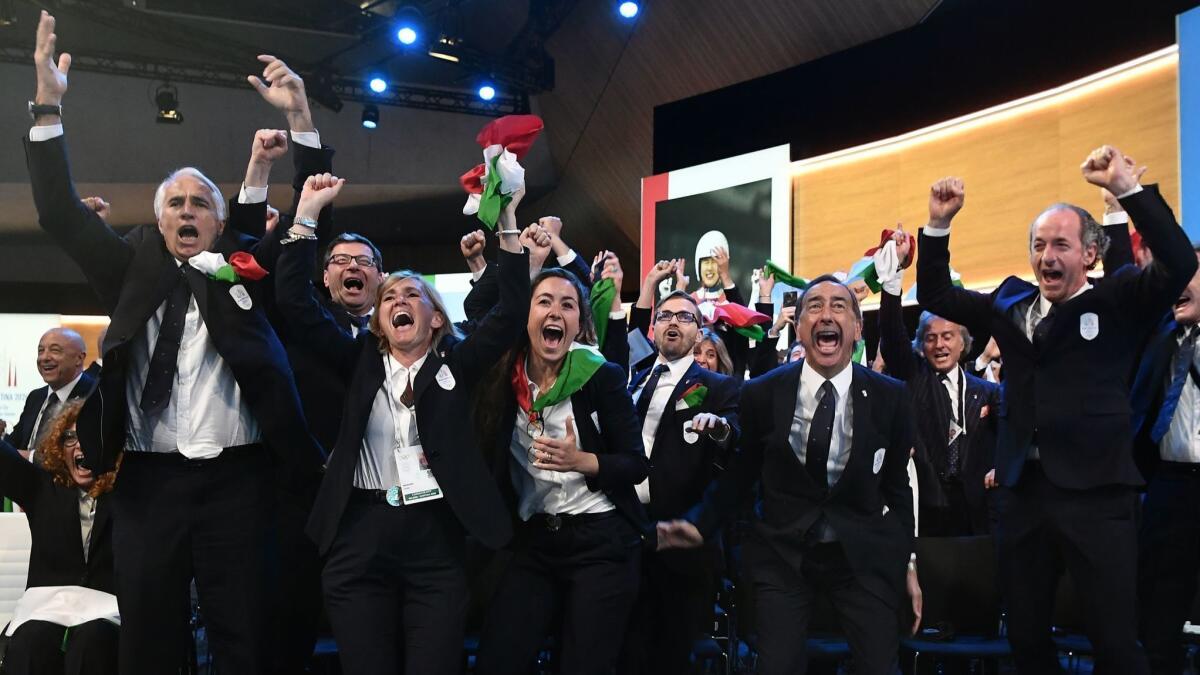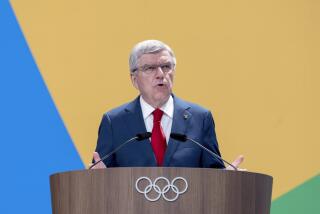Two Italian cities win vote to host 2026 Winter Olympics

- Share via
For weeks, it seemed that Italy held the edge in bidding for the 2026 Winter Games. On Monday, Olympic leaders made it official.
The cities of Milan and Cortina d’Ampezzo beat out a rival bid from Sweden on a 47-34 vote as the International Olympic Committee made good on its desire to return to a traditional winter sports setting.
“The passion and knowledge of Italian fans, together with experienced venue operators, will create the perfect atmosphere for the best athletes in the world,” IOC President Thomas Bach said, describing the winner as “a classic Alpine environment.”
The IOC noted the Milan-Cortina bid was bolstered by “unified backing” from local and national government. Previously, an evaluation report had seemed to give Italy the advantage, in part, because of financial guarantees for construction.
Italy recently hosted the Winter Olympics, with Turin serving as host in 2006. The Cortina d’Ampezzo resort area had a previous turn, too, in 1956.
Sweden had proposed Stockholm and Are in hopes of earning its first Winter Games, but government officials had not promised significant support. Municipal officials in Stockholm had stated they would not sign the IOC’s host city contract.
IOC polling also showed Italy in the lead with public support estimated at around 80%, compared with less than 60% in Sweden.
Sign up for our daily sports newsletter »
Either way, the IOC seemed content with both possibilities after recent stops in Russia and South Korea, and the selection of Beijing for the 2022 Winter Games.
The Olympic movement has recently struggled to attract candidates amid the rising costs associated with bidding and hosting. The 2014 Sochi Winter Games made headlines with Russia spending an estimated $51 billion on venues and infrastructure.
IOC leaders have sought to reverse the trend with a series of reforms known as Agenda 2020. The shift has encouraged bidders to make use of existing venues and spread the competition among neighboring cities and countries.
Faced with economic woes, Italy will rely mainly on existing facilities but must build an athletes village, which is often a financial burden for hosts.
Follow @LAtimesWharton on Twitter
More to Read
Go beyond the scoreboard
Get the latest on L.A.'s teams in the daily Sports Report newsletter.
You may occasionally receive promotional content from the Los Angeles Times.







